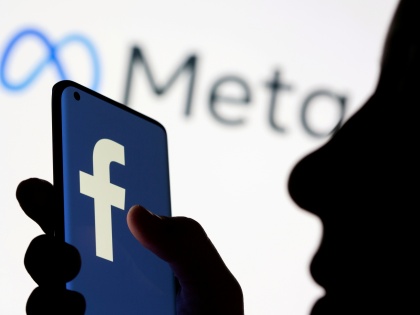Meta bars political advertisers from using generative AI tools
By Lokmat English Desk | Published: November 7, 2023 04:27 PM2023-11-07T16:27:58+5:302023-11-07T16:28:43+5:30
In a move that could force political parties across globe to change their social media strategy during elections, Meta ...

Meta bars political advertisers from using generative AI tools
In a move that could force political parties across globe to change their social media strategy during elections, Meta is banning political advertisers from using the Facebook parent company’s new generative AI products as per a Reuters report. For the unversed, Meta's advertising standards prohibit ads with content that have been debunked by the company's fact-checking partners, but it does not have any rules specifically on AI. The company publicly disclosed the decision to bar certain advertisers from using its AI tools in updates posted to its help centre on Monday night."As we continue to test new Generative AI ads creation tools in Ads Manager, advertisers running campaigns that qualify as ads for Housing, Employment or Credit or Social Issues, Elections, or Politics, or related to Health, Pharmaceuticals or Financial Services aren't currently permitted to use these Generative AI features," it said in a note appended to several pages explaining how the tools work.
The move comes after President Joe Biden last week signed an executive order establishing AI guardrails such as requiring developers to share some information with the government and assigning agencies to create safety and security standards for AI tools and issue guidance on AI labeling and watermarking. Earlier in October, Democrat legislators Sen. Amy Klobuchar of Minnesota and U.S. Rep. Yvette Clarke of New York in a letter to Meta CEO Mark Zuckerberg and X CEO Linda Yaccarino expressed concern about AI content in political ads and sought information regarding the platforms’ efforts to prevent harm to fair elections.“With the 2024 elections quickly approaching, a lack of transparency about this type of content in political ads could lead to a dangerous deluge of election-related misinformation and disinformation across your platforms — where voters often turn to learn about candidates and issues,” the letter said.
Alphabet's Google, the biggest digital advertising company, announced the launch of similar image-customising generative AI ads tools last week. It plans to keep politics out of its products by blocking a list of "political keywords" from being used as prompts, a Google spokesperson told Reuters. Google has also planned a mid-November policy update to require that election-related ads must include a disclosure if they contain "synthetic content that inauthentically depicts real or realistic-looking people or events."
TikTok and Snapchat owner Snap both bar political ads, while X, previously known as Twitter, has not rolled out any generative AI advertising tools.Meta's top policy executive, Nick Clegg, said last month that the use of generative AI in political advertising was "clearly an area where we need to update our rules."He warned ahead of a recent AI safety summit in the UK that governments and tech companies alike should prepare for the technology to be used to interfere in upcoming elections in 2024, calling for special focus on election-related content "that moves from one platform to the other." In the last couple of years, the social networking platform along with its messaging app WhatsApp, Bytdance-owned TikTok, and ShareChat, has emerged as a go-to platform for political parties to run their views and propaganda to attract as well as manipulate voter base.
Open in app